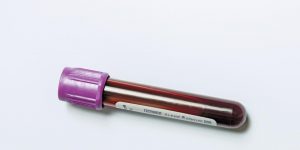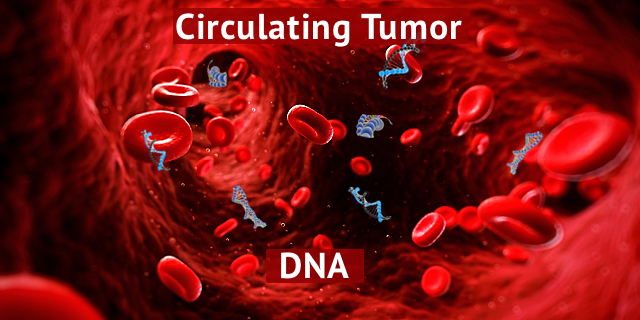A recent article in the Journal of the American Medical Association-Oncology (JAMA) contains an exciting strategy (made possible again by all the work of the Human Genome Project) for treatment decision making and finding recurrences earlier for those diagnosed with colorectal cancer.
Colorectal cancer is the third most common cancer. Treatment involves surgery and, for some patients, chemotherapy. A recent study from Denmark looked at tumor DNA circulating in the blood of patients. Here’s what happened.
One hundred and twenty-five patients with Stage I, II or III colorectal cancer completed the study. Prior to surgery, their blood was tested for the presence of their tumor DNA. Thirty days after surgery, their blood was again tested for circulating tumor DNA. Every three months for three years, their blood was tested for circulating tumor DNA.
To do this testing, the researchers had each patient’s tumor sequenced and chose 16 genetic variants to search for in the blood of each patient. If the patient had two of those variants from their tumor in the blood, their blood was deemed positive for the circulating tumor DNA. During the three years, none of the patients or researchers or clinicians knew the blood test results. Throughout, patients received the standard care as treatment for their cancer.
At the end of the three years, the patients’ records of their care were matched with the data from their bloodwork. Comparisons were made between outcomes, like recurrence of the cancer, and the presence or absence of the circulating tumor DNA in the blood.
Exciting Findings
The first finding was that almost 90% of the group had circulating tumor DNA in their blood before surgery to remove the cancer. That figure can be broken down by stage: 40 percent of the people with Stage I, 92 percent of those with Stage II and 90 percent of those with Stage III had circulating tumor DNA.
Second, they looked at the circulating tumor DNA 30 days after surgery. They had that data for 90 patients and 89 percent of those patients were negative for circulating tumor DNA after the cancer had been removed during surgery.
of those patients were negative for circulating tumor DNA after the cancer had been removed during surgery.
Those who had circulating tumor DNA 30 days after surgery had a significantly higher rate of recurrence of their cancer than those who did not have the tumor DNA in their blood. The researchers looked at the patient’s stage and amount of lymph node invasion and the only factor that related to the recurrences was circulating tumor DNA. All the patients who had circulating tumor DNA were treated with chemotherapy. The patients that had a recurrence of their cancer had circulating tumor DNA in their blood stream throughout the chemotherapy or the circulating tumor DNA returned to their blood stream shortly after their chemotherapy ended.
The research found that the blood test was able to detect a recurrence of the cancer 8.7 months prior to the recurrence being found on CT scan. The patients blood actually showed increasing amounts of the tumor DNA while the patients waited for the CT scans to find the recurrence. Researchers looked at the tumor sequencing in the patients whose blood showed that they had disease prior to radiological detection and they found that in 64 percent of the patients, their blood work identified mutations that could have been targeted by treatment earlier.
This research showed that blood work for tumor DNA can be used to identify the people who are at risk for recurrence and who need to be treated with chemotherapy immediately after surgery. It also can be used to monitor the chemotherapy effectiveness and to decide to change or extend chemotherapy. This test can detect recurrences earlier and also identify mutations that can be targeted for treatment. Using circulating tumor DNA blood work to make decisions – as opposed to the present use of staging and clinical risk factor evaluation – seems to be a no-brainer. As the authors or the article put it, “Our results suggest many potentially paradigm-changing clinical applications” using this to guide colorectal cancer treatment and disease management.








In case of CRC mutant KRAS G12C with peritoneal carcinosis, it should be useless to treat the patient with any kind of chemotherapy, at least until the compound MRTX849 will available in the clinic.
Prof. Angelo Forgione